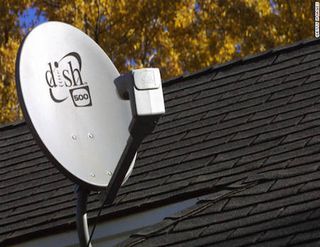Cable to FCC: Flash Cut to DBS Fee Parity Already...Please

Cable operators continue to try and get the FCC to cut to the chase and even up the regulatory fees satellite operators and cable operators pay the FCC, but at the least say the FCC should continue to raise the DBS fee.
Related: ACA Says It's Past Time for DBS to Pay Fair Share
The FCC used to charge satellite operators per license rather than per sub, but decided a half-deade ago to start charging DBS per sub and put them on a glide path to parity with cable, raising their fees annually.
But cable operators, who never liked the glide path strategy, have been urging the FCC to just start charging MVPDs the same fee rather than "perpetuate the long-inexplicable disparity between cable/IPTV and DBS regulatory fees."
In reply comments to the FCC on its latest annual fee assessments, ACA Connects and NCTA-The Internet & Television Association, the cable ops pushed back on comments by DBS providers that the added 12 cents per sub fee the FCC is proposing in its latest glide-path increase should not be levied.
They said DBS arguments are predictable, meritless, and should be repudiated, then added that rather than not raise the fee on DBS, the FCC should complete the phase-in.
The FCC charges its fee based on how many full time employees it takes to regulate a particular service. Satellite operators argue that is fewer than cable, so their fee should be smaller. The cable ops call that a "Straw man," and attempt to knock it down with the observation that the FCC has said the DBS fee "is based on the significant number of Media Bureau FTEs that work on MVPD issues that include DBS.”
Multichannel Newsletter
The smarter way to stay on top of the multichannel video marketplace. Sign up below.
As to the FCC not yet phasing the fee up to meet cable, they say the FCC "still proposes that DBS providers pay a much lower fee than other MVPDs to support the Media Bureau’s work, with no justification other than the observation that the Commission has adopted a phase-in approach for DBS fees each year since FY 2015."
Contributing editor John Eggerton has been an editor and/or writer on media regulation, legislation and policy for over four decades, including covering the FCC, FTC, Congress, the major media trade associations, and the federal courts. In addition to Multichannel News and Broadcasting + Cable, his work has appeared in Radio World, TV Technology, TV Fax, This Week in Consumer Electronics, Variety and the Encyclopedia Britannica.

